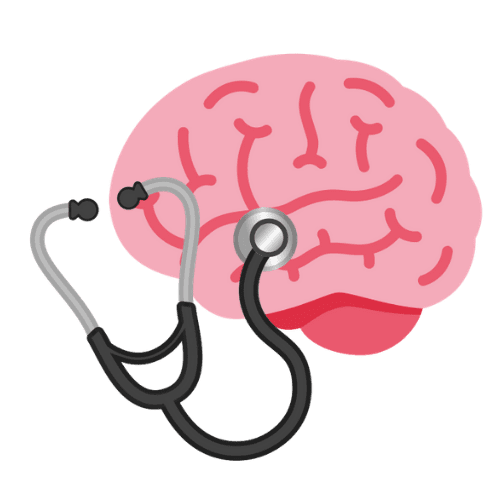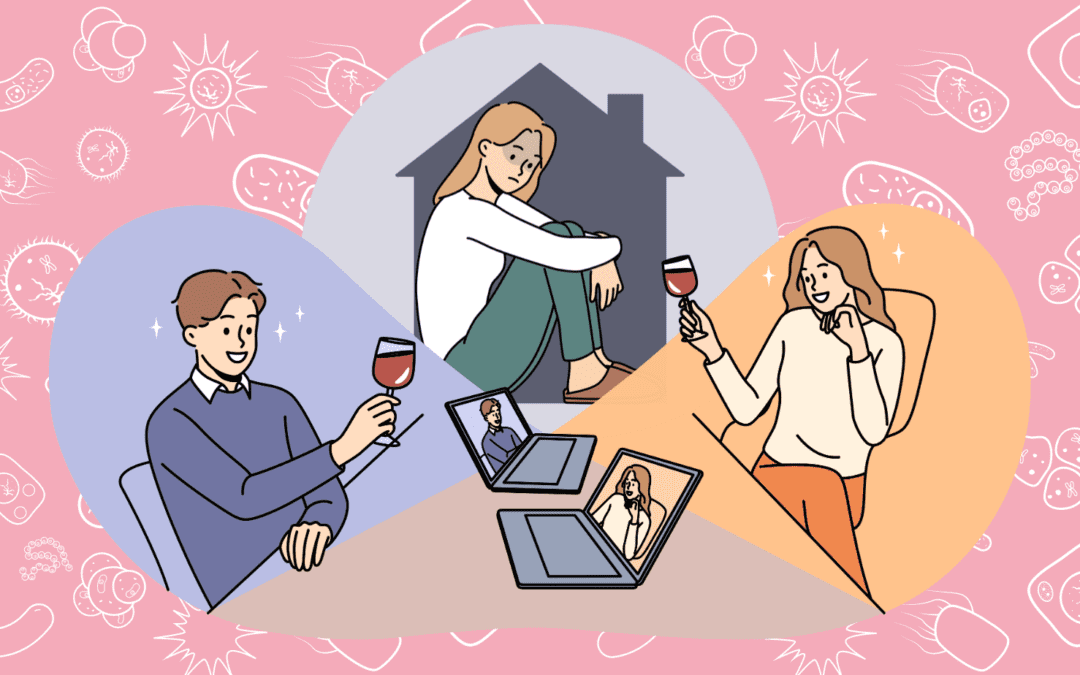I’ve been quiet on this blog.
It’s because, truthfully, I underestimated how overwhelmed I would get with everything going on last semester.
Most of my time was spent by myself in a small studio flat. I spoke aloud for usually less than two hours a day. Lockdown and restrictions left me stuck far away from my family and my boyfriend. My friends lived a fifteen-minute walk away, but due to COVID-19 restrictions in Scotland, I barely saw them.
Loneliness, the demands of a difficult neuro + endocrine module, and adjusting to ‘the new normal’ all began to get a bit too much. In some respects, I was feeling under-stimulated. The vast majority of my teaching was live-streamed with little interaction. I wasn’t fulfilling my needs socially. I was also quite frankly really bored. Gone were the days of movie nights with my friends, relaxing over coffee in the medical school cafe, and weekend trips away for meetings at the British Medical Association.
The move to life online was great at first, I loved its convenience. Perhaps in an effort to combat my sense of isolation and boredom, I became addicted to Twitter. I also threw myself at loads of new opportunities that would previously have been geographically unfeasible. Pavlovian responses to new notifications were exhibited.
Although initially I was satisfied in reviving my pre-COVID busy-bee lifestyle, I had forgotten that too much stimulation, when you have ADHD, can be a bad thing. Stress began to build up again, as did tearful exhaustion at the end of each day. By the week before my end-of-semester exams, I was getting upset at every minor frustration or disappointment. Given the state of the pandemic in the UK, this was fairly frequent!
Google gave me the answer – the COVID pandemic made my ADHD brain overstimulated.
“Normal” people have brains that can filter out unimportant information with ease. When you have ADHD, every minor stimulus is marked as important by your brain. It’s like sitting in a room with a thousand televisions on, all playing different channels, all at full blast.
And you’re trying to focus on one specific screen.
And someone’s hidden the remote.
When I read this, I could no longer express surprise at how exhausted my brain was.
So what were my next steps?
I turned off notifications.
At first, this was painful – FOMO (fear of missing out) is even harder to cope with when you’re bored already. However, it did me the world of good. I could look at my messages and emails only when I was in the right headspace to engage with them. This also had the added benefit of removing distractions from whatever I was supposed to be doing.
No one should expect themselves, or anyone else, to be accessible all the time.
I searched for the elusive “work-life balance”.
I made the decision to turn off my computer at 6:30pm every day, whether I felt finished with work or not. After that, it was relaxation time so I could actually get to sleep at night, without my brain overthinking the email I’d sent just before climbing into bed. I muted every BMA or uni-related group chat on my WhatsApp.
Importantly, I finally moved BMA tasks from the mental hobby category, to the work category. When debating the role of medical students in a pandemic (perhaps unsurprisingly) doesn’t relax you, it stops being described as a hobby.
This is a good thing to do for anyone with ADHD, whether you’re in the midst of a COVID-19 lockdown or not.
I created bare minimum targets.
Everyone has lazy days, but they’re much more common when you have ADHD, and COVID stops you elaving the house. Sometimes I wake up with so little dopamine that I can’t get out of bed. When the thought of the emails I have to respond to, or the lectures I need to write up, just makes me want to crawl further under the duvet, I have bare minimum targets.
These are small goals that achieve little other than looking after myself:
1) Making myself look presentable
2) Taking my medication and vitamins
3) Doing my skincare routine and brushing my teeth
4) Making my bed
If I do these things and still can’t muster up the motivation to do anything, I can go back to lazing around for the day. But usually, the satisfaction of ticking off those tasks on the reminder app I use gives me the momentum I need to keep going.
Being alive, and being an adult, in the midst of a global pandemic can only be described with one word – stressful.
The evening news makes you wonder if the light at the end of the tunnel will ever turn back on, you can’t do anything, and everyone in your Zoom meeting can see if you’ve tidied your room or not.
I spent months trying to keep up, but what’s the point? This (hopefully) isn’t forever, so for now, the bare minimum will do. ADHD is hard, but a COVID pandemic makes it a whole lot harder. Recognise that, and be proud of yourself. You’ve made it so far.
Control what you can.
You can protect your physical health by staying at home, but protect your mental health too by changing how you do that.
Read more helpful ADHD-aware advice in our Tips category – find it here!
For up-to-date information about coronavirus (COVID-19) in the UK, read current NHS information here.

